Seeking Joy While Carrying Burdens: Matthew Kelly & Tammy Bullock
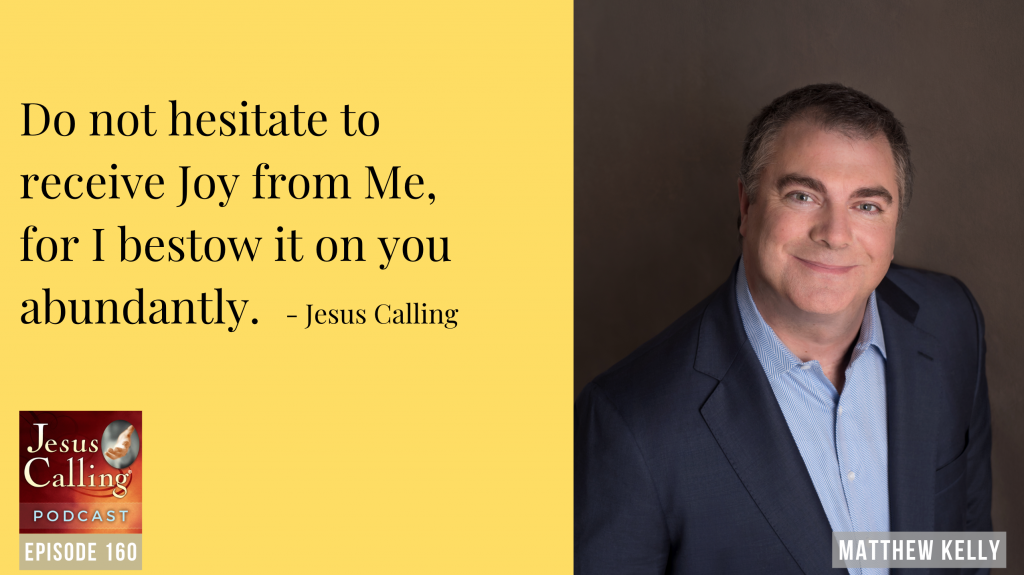
Matthew Kelly: One of Jesus’s essential invitations is that we lay down our lives, and that we do it in relation to our gifting and in relation to the needs of the world at this time. I think there is a great explosion that occurs when our gifting meets the deepest needs of our time.
Seeking Joy While Carrying Burdens: Matthew Kelly & Tammy Bullock – Episode #160
Narrator: Welcome to the Jesus Calling Podcast. Today’s guests have discovered, through time and testing, how to find joy amid difficult circumstances and bring that joy to a hurting world: author and speaker Matthew Kelly, and nonprofit leader Tammy Bullock.
For decades, Australia native Matthew Kelly has tried to meet God’s people where they are and encourage them to move toward where God is calling them. He’s written more than 30 books with the aim of inspiring people, including his newest called Rediscover the Saints. And in 2009, he founded Dynamic Catholic, an online community and resource center looking to give people help and hope. Today Matthew tells us how it’s easy to find God in the ordinary, and why living in “holy moments” are more attainable than living a “holy life.”
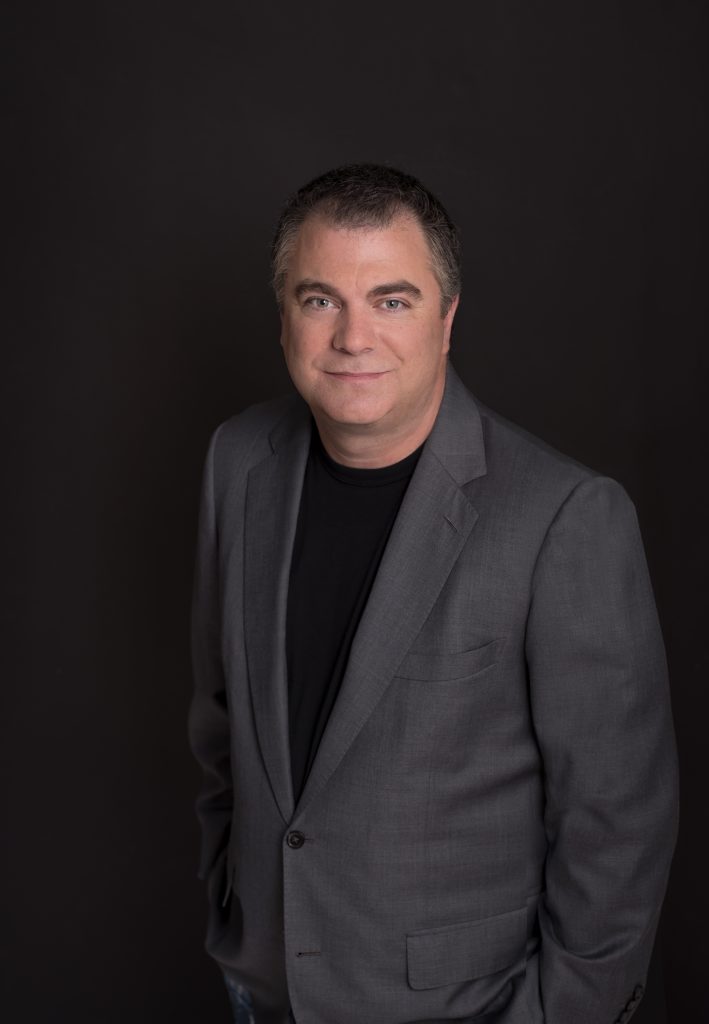
Matthew Kelly: Hi, I’m Matthew Kelly. I’m a speaker. I’m an author. I’m a husband. I am father, a son, a brother. I grew up in Sydney, Australia, and I live here in the United States now.
So growing up in Australia, it was a fabulous experience. I have seven brothers—I’m the fourth of eight boys. It’s a big family. [We had] lots of fun, [played] lots of sports. What sport? Every sport, any sport. Probably a very competitive environment in lots of ways, but also a very loving environment.
I’ve tried to deconstruct the values my parents tried to instill into me and my brothers. What they gave us was a really a very human foundation, a very strong grounding in hard work as an ethic, as a value, like honesty and always telling the truth. When they were teaching us about Jesus, when they’re teaching us about spirituality, it meshed very well with those very basic human foundations.
Learning to Ask, “What Matters Most?”
I grew up in the Catholic tradition, and so my context for Christianity is Catholicism.
I started Dynamic Catholic in 2009 in response to the fact that there are more than 70 million Catholics in America and in 2009, there were 30 million Catholics not attending Sunday Mass. So many things were happening: closing churches, closing schools, going in the wrong direction, society going in the wrong direction.
Humanity is broken and messy. I mean, things are a mess here. Everybody knows it. You don’t have to be Catholic to work that out. What do we do with this mess? Because the collateral damage is real people: their lives, their families, and their marriages. And if they’re going to experience Christianity in the context of Catholicism, how do we make that powerful experience, a transformative experience? How do we come up with a model that takes a faith community from a place of survival and mediocrity to a place of thriving excellence?
“Humanity is broken and messy.” – Matthew Kelly
I think some of my friends thought I was absolutely crazy when I started Dynamic Catholic. [I had] just gotten married, I had my first child. But it’s been a great journey. There have been a lot of challenges, but so many people’s lives have been touched and transformed.
The people of our age are spiritually hungry. They’re actually starving to death spiritually. Regardless of what tradition they were raised in or what tradition they are practicing, they’re absolutely hungry. And I think that manifests most in an unspoken hope. I think quietly somewhere deep inside, they hope there’s another path than the path that the world is offering them because they know that the path the world is offering them is bankrupt.
People often will question my Christianity and, “Why is that important to you?” and that sort of thing. Particularly to nonbelievers, I’ll say to them, “Listen, even if you could absolutely prove to me that Jesus didn’t die on a cross, didn’t rise from the dead—I mean, historically we know He existed, so you can’t prove to me that never happened. But even if you could prove to me that He didn’t exist, He didn’t die from that on a cross, didn’t rise from the dead, I still believe the gospel of Jesus Christ is the best way to live.”
“I still believe the gospel of Jesus Christ is the best way to live.” – Matthew Kelly
That’s a good foundation for me to come back to, especially during times of discouragement or doubt, which we all experience. I don’t think we talk about that anywhere near enough in the church. But this is the best way to live.
Finding Joy and Compassion Amid Suffering
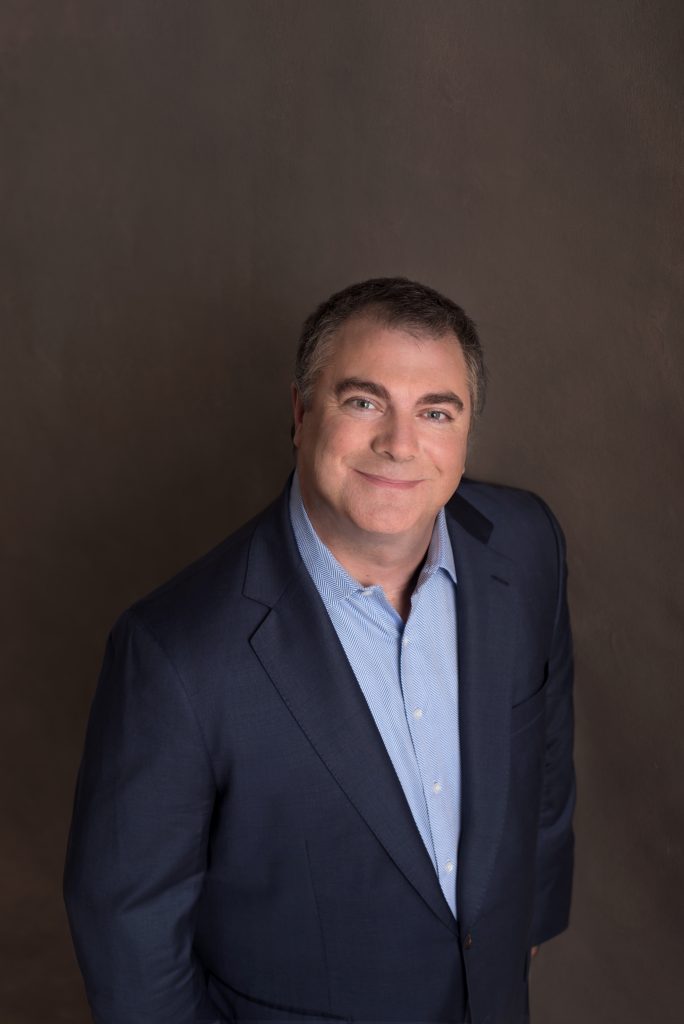
I think it’s very important that we monitor our joy, that we stay attentive to our joy.
And of course, in Paul, we find sort of the great champion of joy, which is his central theme from prison.
“I think it’s very important that we monitor our joy, that we stay attentive to our joy.” – Matthew Kelly
Paul’s central theme from the squalor is joy, [which] I think is a profound and very powerful lesson because I think we attach ourselves in our society to a joy that is dependent on substance or circumstance. It’s easy to be happy in the Bahamas in January, laying by the pool. The real test becomes maintaining our joy in the midst of suffering.
Another powerful moment for me was my first diagnosis of cancer. I’ve had cancer three times—all unrelated—three different types of cancer, which is strange and rare.
I remember coming out of the doctor’s office the first time I had cancer, and my head was spinning, my ears were ringing . . . and the whole world goes on. Nobody knows you just got told you have cancer. The person in the elevator doesn’t know, the parking attendant doesn’t know that just happened. The world just keeps going on.
And I think that was a very powerful lesson for me because it drew me very close to that concept that everybody you meet is carrying a heavy load. Everybody you meet is carrying a heavy burden. We forget that. And when we forget that, we lose compassion. We dehumanize many of our conversations, relationships. But if we’re mindful that everyone we meet is carrying a heavy burden, we treat people with a different gentleness or with different respect. And I think that’s very powerful.
“If we’re mindful that everyone we meet is carrying a heavy burden, we treat people with a different gentleness or with a different respect.” – Matthew Kelly
That was probably the biggest lesson I learned from my first bout with cancer, that everyone has stuff going on inside of them and you have no idea what it is. And it’s not that you need to know what it is, but that you should assume they do have something going on inside of them, and that as a result, we should be gentle with each other. And part of that is learning to be gentle with ourselves.
Connecting with God Through Jesus Calling
I first encountered Jesus Calling as a gift from someone who became a great spiritual mentor to me, and I was fascinated with it. I’d read it all the time. And I would read the reflections for the day, but I would very often jump around as well. I’d just open it up at different times of the day and see what the Spirit was saying to me.
The reflection for March the 14th:
Do not hesitate to receive Joy from Me, for I bestow it on you abundantly. The more you rest in My Presence, the more freely My blessings flow into you. In the Light of My Love, you are gradually transformed from glory to glory. It is through spending time with Me that you realize how wide and long and high and deep is My Love for you.
Sometimes the relationship I offer you seems too good to be true. I pour My very Life into you, and all you have to do is receive Me. in a world characterized by working and taking, the admonition to rest and receive seems too easy. There is a close connection between receive and believing: As you trust Me more and more, you are able to receive Me and My blessings abundantly. Be still, and know that I am God.
I think the way the passage resonates with me is two fold. There’s a beautiful, personal nature to these reflections. And I think the power of [Jesus Calling] and the success it’s had in touching people’s hearts is deeply linked to that personal nature of these reflections. We talk about having a personal relationship with God, but it’s hard to connect to that sometimes, and I think this effortlessly creates that connection and creates a bridge.
“We talk about having a personal relationship with God, but it’s hard to connect to that sometimes, and I think [Jesus Calling] effortlessly creates that connection and creates a bridge.” – Matthew Kelly
The other thing that resonated as I was reading this and cast me back to sort of my first experience of it is how very positive the reflections are and how encouraging they are at every turn. Even when they’re challenging us, they’re incredibly supportive and encouraging.
We’re being encouraged here so that we can go out and encourage other people. And there are 7 billion people, give or take, on the planet today. 6.9 billion of them will probably go to bed hungry tonight for one honest word of encouragement. And so a very real way we can collaborate with God is by encouraging the people in our lives and people who cross our paths.
Living Holy Moments
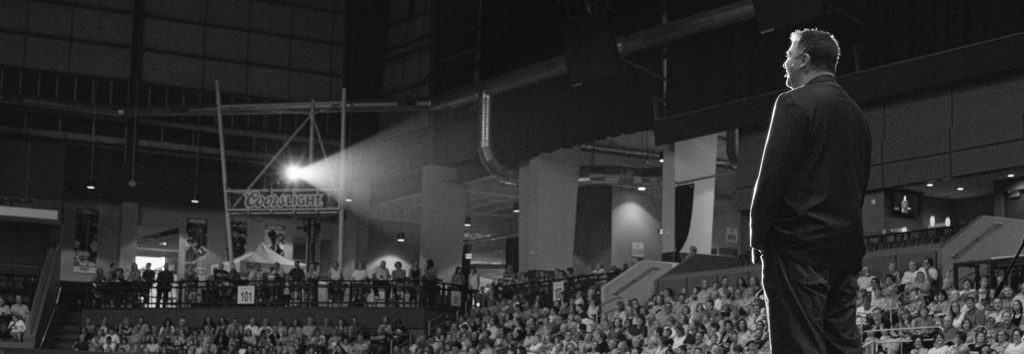
As a Catholic, the idea of writing a book about the saints is a no brainer, but it’s an idea that I have resisted for more than 25 years.
I have often thought, The world wouldn’t need another book about the saints. Most of them are short biographies of the saints, or quotes, or things like that. But some friends really challenged me to look at it.
The biggest lie in the history of Christianity is the lie we tell ourselves that holiness is not possible, and the antidote to that is what I call the holy moment—the idea that if we go out today and we just ask God, “All right, God, let’s create a holy moment.” In any situation we turn to God and say, “God, what do you want me to do right now?” And if we just set aside self-interest, what we feel like doing, what we want to do, and we just do what we feel God is calling us to do at that moment, we’ve created a holy moment.
“In any situation we turn to God and say, ‘God, what do you want me to do right now?’ And if we just set aside self-interest, what we feel like doing, what we want to do, and we just do what we feel God is calling us to do in that moment, we’ve created a holy moment.” – Matthew Kelly
These people we call saints—which is complicated, because the word saints has carried many definitions throughout the history of Christianity, and I think it’s worth talking about that in a minute—but the saints didn’t live holy lives. They lived holy moments, and between the holy moments. There was some very dark, messed-up, twisted stuff going on in the lives of the saints. Their humanity was very real. They overwhelmed those dark moments by creating more and more holy moments.
“The saints didn’t live holy lives. They lived holy moments, and between the holy moments.” – Matthew Kelly
But their life wasn’t one action. And I think that danger is we sit back and think, Oh, he lived a holy life, or, She lived a holy life. No. They lived 10 million holy moments or whatever, but their life wasn’t one action.
What is a saint? That’s an important question for us to ask ourselves as a church, and what role does it play? Paul addresses the people in the various community as “saints,” and there is a very specific definition of a canonized saint within traditional Christianity.
But there is the church has always held the idea that “Okay, these are just some [of the saints]. Most of the saints, they come and go anonymously through life. Nobody’s ever going to canonize them. Nobody’s ever going to say, ‘That person was a saint,’ or whatever.”
“But we all are called to be saints in the way Paul envisioned in his letters. I think that’s a concept that needs to be rediscovered, because it leads us to understand that we have a part to play in the revitalization of our society and the renewal of our world.” – Matthew Kelly
We tend to put people up on a pedestal. We do that for a lot of reasons. Obviously, the reason we tell ourselves is, “Oh we respect this person,” or, “We respect the work they’ve done.” But I think one of the hidden reasons we do it is to separate them from us to say, “Okay, they’re different than me.” And in doing so, abdicate ourselves of the responsibility to do what they’re doing or to live at the level they are trying to live.
It’s very important to me that my reader understands that I absolutely do not have it altogether. I absolutely do not have all the answers. And it’s not about that. It’s about being committed to the journey and [asking ourselves], How committed am I today? Because I could be 100% committed yesterday, but if I’m not committed at all today, then I’ve lost something.
And I think both as Christians and as a society, we need to give our leaders permission to be human, because we’ll see an astounding new authenticity if we do.
“As Christians and as a society, we need to give our leaders permission to be human, because we’ll see an astounding new authenticity if we do.” – Matthew Kelly
Many Christians believe the culture has become too strong, it’s become impenetrable, and there’s absolutely nothing we can do. And that’s defeatism. It certainly isn’t a spirit of Christianity. There’s a tendency to say, “We just need God to directly intervene. We need the second coming, or we need God to directly intervene.”
That isn’t the spirit of Christianity. The spirit of God’s relationship with [humanity] throughout the Judeo-Christian tradition has always been one of collaboration. God wants to collaborate with us, and that collaboration is beautiful.
“The spirit of God’s relationship with [humanity] throughout the Judeo-Christian tradition has always been one of collaboration.” – Matthew Kelly
We see that with Jesus entering the world. Jesus could have just entered the world, but God chose to collaborate with Mary in that. And then there’s great collaborations throughout the history of our tradition between God and humanity, and I think God’s inviting us to one of those collaborations again now. The question is, will we accept the invitation?
Narrator: To learn more about Dynamic Catholic, please visit dynamiccatholig.com. Matthew’s book Rediscover the Saints is available from your favorite book retailer today.
Narrator: Stay tuned as we talk with nonprofit leader Tammy Bullock after a brief message about the Jesus Calling Weekly Prayer Call!
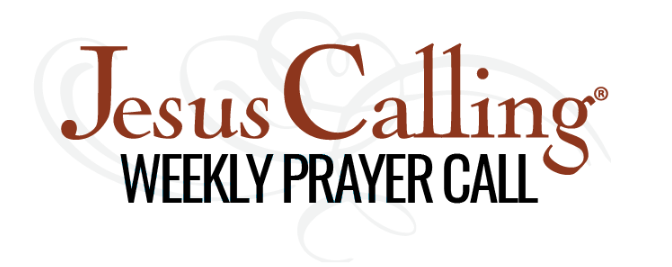 Narrator: Did you know that Sarah Young, the author of Jesus Calling, prays for her readers each day? In that spirit, we want to extend the Jesus Calling prayer community out to you in a more personal way. Each Tuesday morning, you can dial into the Jesus Calling Weekly Prayer Call, where the team from Jesus Calling and special guests will minister to us during a 10-minute call to reflect on that day’s passage from Jesus Calling, read scripture references, and pray together for each other and our world. Prayer call times are 8:00 AM ET, 7:00 AM CT, 6:00 AM MT, and 5:00 AM PT and are for US only. For more information on the Jesus Calling Weekly Prayer Call or to submit prayer requests, please visit www.jesuscalling.com/prayer-call.
Narrator: Did you know that Sarah Young, the author of Jesus Calling, prays for her readers each day? In that spirit, we want to extend the Jesus Calling prayer community out to you in a more personal way. Each Tuesday morning, you can dial into the Jesus Calling Weekly Prayer Call, where the team from Jesus Calling and special guests will minister to us during a 10-minute call to reflect on that day’s passage from Jesus Calling, read scripture references, and pray together for each other and our world. Prayer call times are 8:00 AM ET, 7:00 AM CT, 6:00 AM MT, and 5:00 AM PT and are for US only. For more information on the Jesus Calling Weekly Prayer Call or to submit prayer requests, please visit www.jesuscalling.com/prayer-call.
Narrator: Most of Tammy Bullock’s life has been wrapped up in serving others, as she does currently for the Nashville Rescue Mission. Though her early life was marked by poverty and abuse, Tammy’s singing voice could be heard joyfully rising above the noise of the problems that surrounded her. After catching the attention of the head of a record label, Tammy was well on her way to hitting it big in the music industry, but after returning home from a life-changing trip, she realized her true joy would be found using her voice for God’s purposes.
Tammy Bullock: My name is Tammy Bullock. I am the transitional house coordinator at the Nashville Rescue Mission women’s campus.
Scripture Sparks a Faith Journey
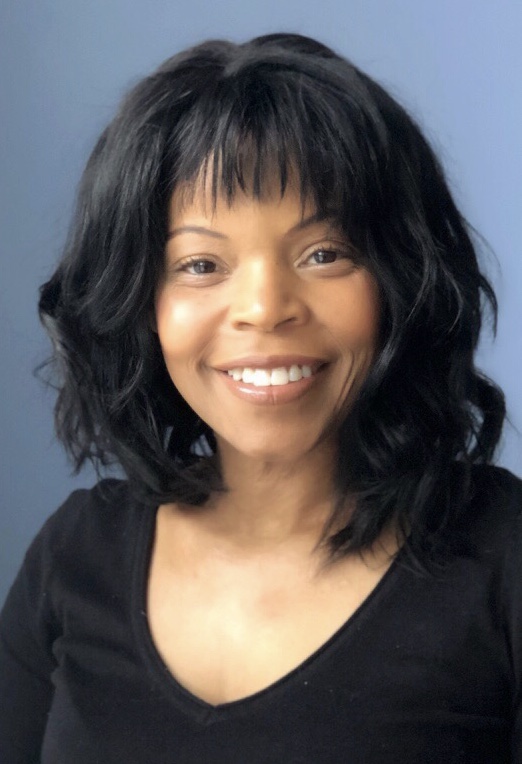
I am a Kansas City, Kansas girl. I grew up moving quite a bit. We were either evicted or had some challenges in the spaces we lived in. But the majority of my years were in the projects on 5th and Quindaro in Kansas City, Kansas.
I am the youngest of four. I was never really the baby because my brother right over me, Christopher, is both autistic and mentally handicapped. And then I have a sister, Trina, who is the middle sister, and our oldest sister Shelley.
We were all singers. We grew up singing in a group and sang gospel music at church and in the Kansas City area. I would say a lot of our lives was shaped by music and the gospel music that we sang.
Our mother was the minister of music at our church. She did have some challenges. As I’ve said, we moved around quite a bit or we were living in the projects. When I was six months old, our father left. Not long after our father left, it was discovered that [my brother Christopher] was autistic and mentally handicapped.
And our mother, I think now I understand she had a nervous breakdown. She struggled somewhat with addiction. It was pot at the time, but I believe it got in the way of her being able to care for us. She was a teacher. She had gotten her undergrad degree at that point, but I believe with our father leaving, that was just the beginning of a downslide for her.
I don’t think she did heavy drugs, but there were times when she’d be gone for days at a time and so we ate out of the trash can. There was some abuse, some molestation from family members. And so there were some very, very difficult challenges I faced and we faced in our childhood.
At 9 years old, I will never forget my mother’s best friend Mrs. Johnson. We had been attending church, but she was the one that really sat down with us and told us about the scripture, “I can do all things through Christ who strengthens me,” Philippians 4:13. And that was the first scripture I actually memorized.
That scripture meant so much to me because of the things that had happened in my life. And of course, it gave me the courage and the strength to tell on this family member who had been abusing me.
That was the beginning of my faith journey. And at nine years old, I understood [the meaning of] faith: a hope for something I cannot see, but I can believe it.
“At nine years old, I understood [the meaning of] faith: a hope for something I cannot see, but I can believe it.” – Tammy Bullock
Finding True Purpose Through Music
As a teenager, we discovered my sisters and I could sing incredibly well. Our aunt is Marian Love. She had a number-one single when we were younger. “I believe in music. I believe in love.” That was in the 70s, and I may have been three or four years old.
We knew how to harmonize very early on, and so we formed The Love Singers. It was my sisters Shelley and Trina and myself
I remember I became the spokesperson for our group. I was the youngest person in the group, but I had such a desire and a love to share the goodness of the gospel. We sang a lot. We sang around town.
I graduated from high school, Harmon High School in Kansas City. I went to a junior college and then started at UMKC—University of Missouri at Kansas City.
UMKC is where I was singing at an event for underprivileged children, and there was a an independent record label owner at the time that heard me. He had a group—and I’m not going to say the name of that group—but they asked if I would join the group.
I had gone to college two years at that time. And my mother was an educator. She stopped the smoking pot and the drugs and had been teaching for some years at that point. And she was very proud of me, but could not understand why I was going to stop school and go and sing with this group.
I moved to Miami with this group, traveled. We opened up for some pretty large acts at the time. But eventually I signed with Sony Records. I was given a seven-album deal with Sony 550. At the time, that label had Celine Dion, Mariah Carey—some amazing people.
But it was during the recording of my CD that I developed an eating disorder, bulimia. When I look back on it, the strange thing is there were times as a child I was trying to get food out of the trash because we were so poor. But I learned through therapy that it was really about trying to control things that were out of my control.
When I would hear myself from a playback of recording, it was horrifying. I felt like I could not produce in the studio what I could sing live. And so there was always a disconnect, and at one point I weighed 88 pounds.
I lived in a beautiful high rise facing the ocean. I remember there was a friend who had come to town—we had gone to school together. And when he saw me, I remember him saying, “Something’s wrong with you. You’re sick.” And he I think he may have thought, She’s using drugs, or something like that, but it was the eating disorder. And he said, “You need to go home.”
I went back to my apartment, fell on the ground prostrate. And I asked the Lord, I said, “If You will save me, I will use this voice You have given me. I will use my voice, my speaking voice, all that I am to bring You glory.”
“If You will save me, I will use this voice You have given me. I will use my voice, my speaking voice, all that I am to bring You glory.” – Tammy Bullock
The Lord raised me up, and from that point, I walked away. People thought that I was insane, that I was crazy. I had a CD that had been released in Europe and maybe Japan, and it was gonna be released here. I said, “I will not promote it. This is not what I’m supposed to do.” And I went home.
I was in the hospital probably for about a week, and then I had very intense therapy. I started working, went back to school at UMKC for a year. I was promoted and relocated here to Nashville about three years later. And I did not sing a whole lot. I really didn’t really sing until I married my husband, and I married him four years later.
“You Were Made to Soar.”
Narrator: Tammy began to get involved in her local church, learning from other women and eventually teaching Bible studies. A few years later, she went to South Africa with her church on a mission trip. And on the plane ride home she realized: God’s greatest gift wasn’t her singing voice—it was her ability to love others.
Tammy Bullock: On the flight back, the Lord spoke to me—and my mother was very sick at the time. So my mother has gotten a doctorate degree. She got her master’s degree in education. She wrote a book called When the Rubber Meets the Road, and it was about at-risk youth who struggle. She was telling the Kansas City School District, “Hey, they may have not eaten the night before. They may have not slept. We have to meet them where they’re at.” Very strong, very bright woman who had some challenges in our childhood though. And I mean, it deeply affected us, but I believe that the Lord was so good to us that we were able to see how she was redeemed and who she became and who we all become
But in August we found out that she had only a few months to live, and she passed in November. One of the last conversations that we had, she said, “You know, I’ve never had to worry about you. You were always a self-starter. But what are you going to do?”
I said, “I’m going to go back to school. I’m going to finally finish my degree, and it’s going to be in ministry.”
Some of her last words I can remember her saying to me are, “Tammy, don’t scratch with the chickens. You were made to soar.” And so I went to school. She passed in November 2007, and then I went to school that January.
“Some of her last words I can remember [my mom] saying to me are, ‘Tammy, don’t scratch with the chickens. You were made to soar.’” – Tammy Bullock
You Are Okay in His Love
Jesus Calling became my devotional when I was a prayer counselor at Brentwood Baptist, and this was at least 10 years ago, 12 years ago. I remember reading it and the words jumped out at me as if Jesus was talking to me.
Not long after that, I started working at Preston Taylor Ministries. This is an inner-city ministry for children and an afterschool program for children whose parents—normally just the mom—who struggle with addiction and poverty.
I remember telling Chan Sheppard, who is the executive director, “We have to reach their mothers to really reach [the kids]. They’re with us only a couple of hours. If we are not talking to their mothers and sharing the Word of God or sharing God’s message with their moms, then what happens here, it’ll only happen here and [be] long forgotten when they get home.”
And so I used a Bible study along with Jesus Calling with these mothers. I remember the conversations around that, the different devotions we would have, and it was the Jesus Calling book that reached them and resonated with them most.
I was eventually hired as a life coach for the Nashville Rescue Mission, a spiritual life coach. And one of the first things I said to my boss was, “I really want them to start with Jesus Calling. Any woman is going to be able to identify with this book.”
And so I have it in the program—it’s a six-to-seven-month program. I will give [Jesus Calling] to them on the first day. I’ll explain that it’s a devotional. “It’s something that you do daily. Just read it, and let Jesus speak to you through this book.”
“I have seen so many women feel loved, feel embraced, and feel as if Jesus is talking to them. [Jesus Calling] is very personal, and they need to feel loved because perhaps each woman, depending upon her life story, has never felt loved unconditionally.” – Tammy Bullock
And my favorite is January 11 because it speaks so much to my own story:
“Trust Me by relinquishing control into My hands. Let go and recognize that I am God. This is My world: I made it and I control it. Yours is a responsive part in the litany of Love.”
That is it. Being able to be overwhelmed with the love of God, rather than being overwhelmed by life—by the abuse perhaps that has happened, by the pressures of bills to pay, whatever that looks like—yours is a responsive part in the litany of love: to respond to His love, to be called in to His love and be enveloped and overwhelmed by His love. I will never forget the first time reading that.
And that is the message I have for our women: you don’t have to fight anymore. You don’t have to do more or try to control. You release it, you surrender, you submit. You can let go. You cannot go with God and stay where you’re at. And where you’re at is trying to reach for things that are going to help you be okay, when you are okay in His love.
Narrator: You can learn how to help Tammy’s organization at nashvillerescuemission.org. And don’t stop there—look for outreach organizations in your own area.
Narrator: If you’d like to hear more stories about people finding joy in their circumstances, check out our interview with Candace Payne.
Narrator: Next time on the Jesus Calling Podcast, we speak with the host and guests of TBN’s Better Together: Lori Crouch, Victoria Osteen, and DeeDee Freeman. Better Together is a show by women, for women that aims to build a community on friendship, love, and encouragement. Victoria and Lori discuss the value of creating friendships with women today.
Victoria: So often the stereotype is that we just kind of judge one another and we’re really not for each other. But I think that’s in the past. I think this new generation and a new happening among women is we’re realizing that we’re better together.
Lori: Yeah.
Victoria: We’re realizing that, When I encourage you, it encourages me.
Lori: Yes.

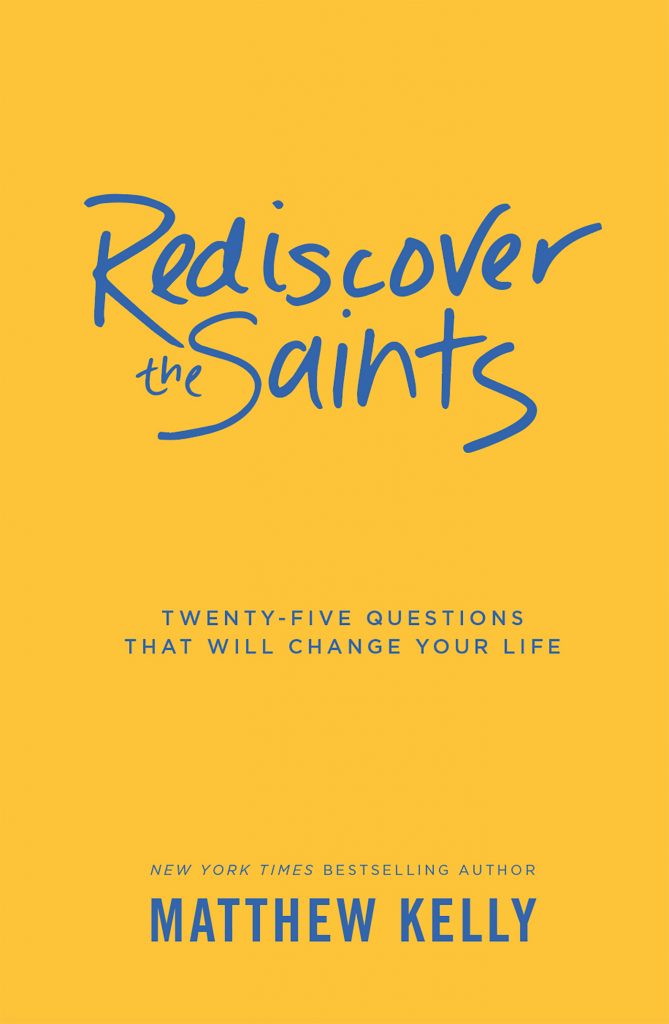



One thought on “Seeking Joy While Carrying Burdens: Matthew Kelly & Tammy Bullock”
Comments are closed.